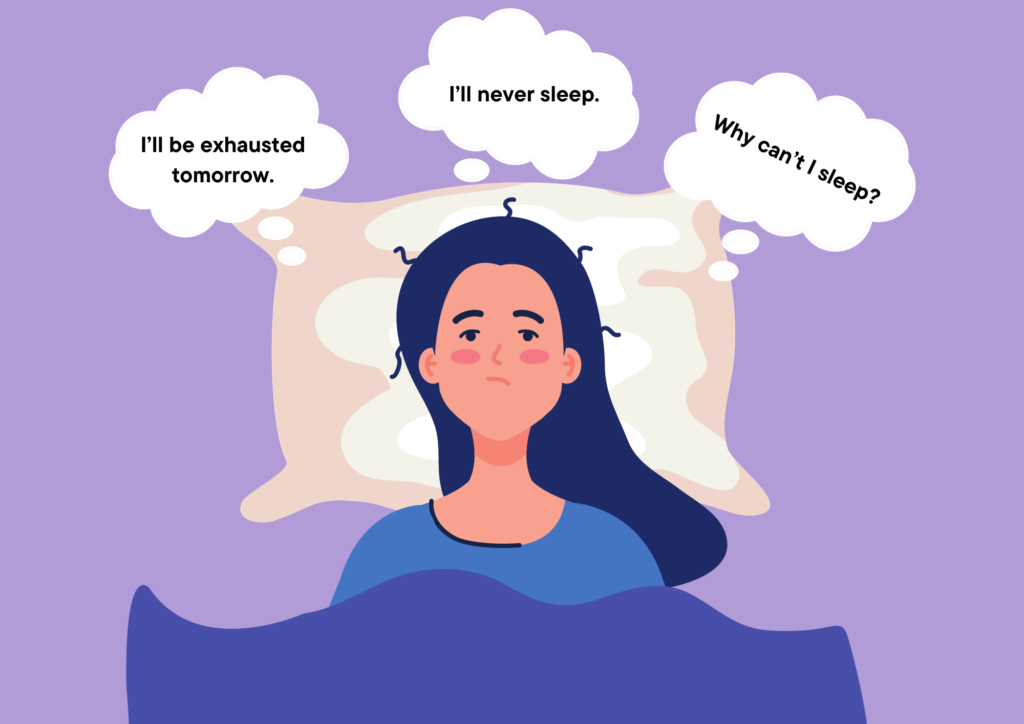Insomnia Management strategies:
James Chamroon . Follow
9 months ago

Insomnia is defined as difficulty falling asleep, staying asleep, or achieving restorative sleep despite adequate sleep opportunities and circumstances. It manifests in a variety of ways, from brief bouts of insomnia to chronic and persistent sleep disturbances. While occasional bouts of insomnia are common and frequently associated with stress, lifestyle factors, or environmental changes, chronic insomnia can have serious consequences for physical, mental, and emotional health.
Causes and Risk Factors:
Insomnia can be caused by various factors such as:
Anxiety, depression, stress, and trauma can all cause increased arousal, disrupt sleep patterns, and perpetuate the insomnia cycle.
Chronic pain, respiratory disorders, gastrointestinal disturbances, neurological conditions, and hormonal imbalances can all reduce the quality and duration of sleep.
Irregular sleep schedules, excessive caffeine or alcohol consumption, screen time before bed, and poor sleep hygiene practices can all disrupt circadian rhythms and interfere with sleep initiation and maintenance.
Noise, light pollution, uncomfortable sleeping conditions, and changes in altitude or time zones can all disrupt sleep patterns and exacerbate insomnia symptoms.
Impact on Health and Well-Being:
Insomnia has physical, mental, and emotional consequences that go beyond just lack of sleep.
Physical Health: Sleep deprivation can impair immune function, disrupt metabolic regulation, increase inflammation, and increase the risk of cardiovascular disease, diabetes, obesity, and other chronic health conditions.
Insomnia is strongly: linked to mood disorders such as depression, anxiety, irritability, and emotional instability. Sleep disturbances can worsen cognitive impairments, impair concentration, memory, and decision-making abilities, and lower overall quality of life.
Emotional Well-Being: Insomnia can cause feelings of frustration, helplessness, and hopelessness, undermining self-esteem and interpersonal relationships. The relentless pursuit of elusive sleep can lead to feelings of fatigue, lethargy, and emotional exhaustion, exacerbating mental distress.
Management strategies:
Addressing insomnia requires a multifaceted approach tailored to individual needs and circumstances.
Sleep Hygiene Practices: Maintaining a consistent sleep-wake schedule, creating a conducive sleep environment, practicing relaxation techniques, and adopting healthy lifestyle habits can all help to promote restorative sleep patterns and alleviate insomnia symptoms.
Cognitive-Behavioral Treatment for Insomnia (CBT-I): CBT-I is a structured, evidence-based psychotherapeutic intervention designed to address maladaptive sleep behaviors, negative thought patterns, and dysfunctional sleep beliefs. CBT-I aims to change people's perceptions of sleep, modify behaviors that contribute to insomnia, and promote relaxation and stress management techniques.
Pharmacological Interventions: Hypnotics, sedatives, like Zopifresh 7.5mg, Zopirise 10mg and melatonin agonists may be prescribed to alleviate insomnia symptoms in the short term. However, the long-term efficacy and safety of pharmacotherapy should be carefully considered, and medications should be administered with caution under the supervision of a healthcare professional.
Mindfulness-Based Practices: Mindfulness meditation, yoga, and other mindfulness-based interventions can help to relax, reduce stress, and increase self-awareness, resulting in a greater sense of inner calm and tranquillity that promotes restful sleep.
Conclusion:
Insomnia is a complex sleep disorder that affects health, well-being, and quality of life. While the causes and consequences of insomnia vary greatly between individuals, treating sleep disturbances necessitates a comprehensive and holistic approach that considers psychological, physiological, and environmental factors. Individuals can face the challenges of insomnia with resilience, optimism, and a renewed commitment to reclaiming sleep's restorative power by raising awareness, promoting healthy sleep habits, and seeking appropriate interventions.
Insomnia is a condition that requires attention and proactive management, but with patience, persistence, and support, people can overcome the barriers to restful sleep and embark on a path to increased vitality, vitality, and well-being.
Visit: pills4cure.com


